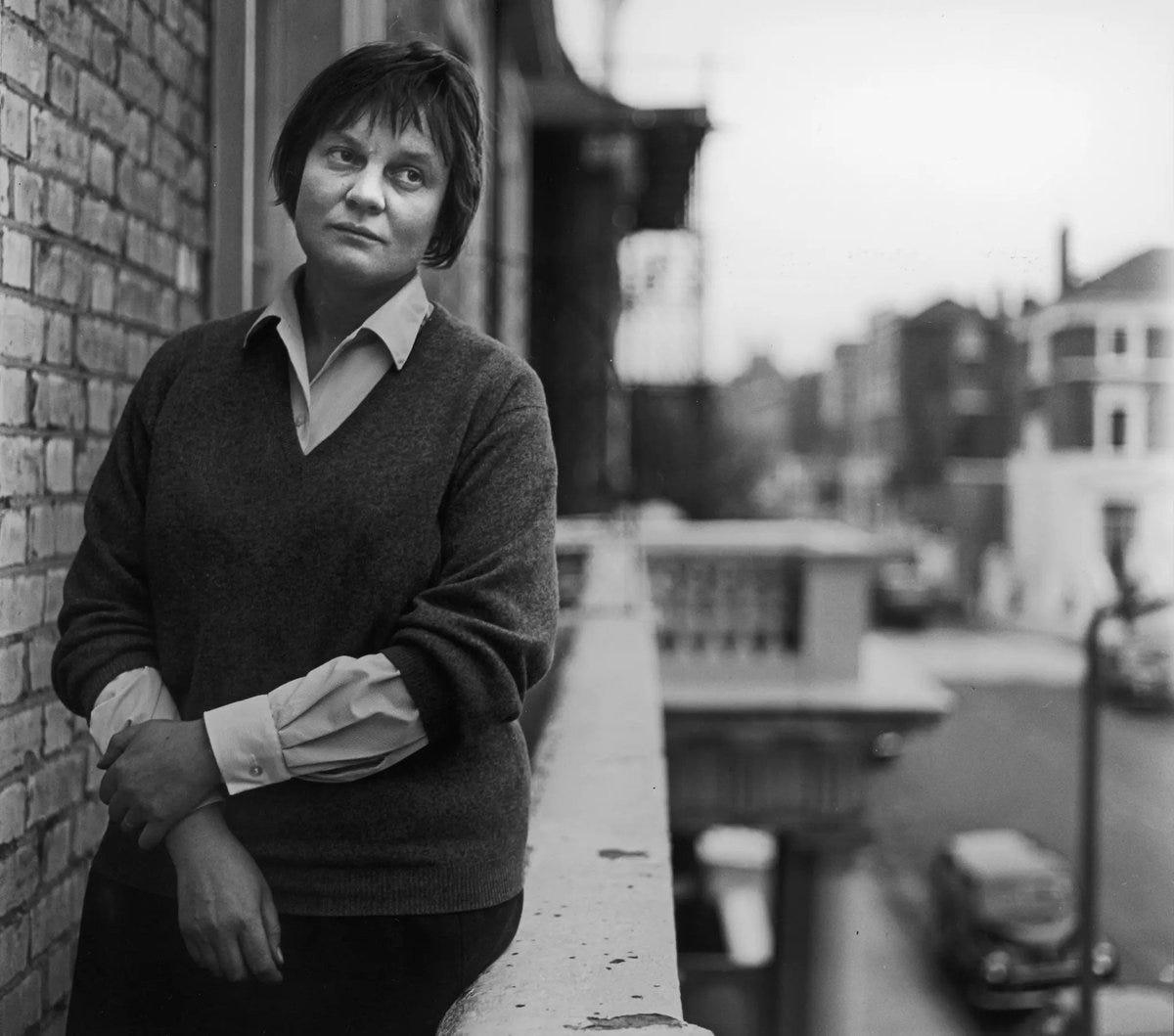I can decide what to say but not what the words mean which I have said.
—Iris Murdoch
In exchanges with friends and family and alleged students, I often find it challenging to get folks to reflect harder before speaking as if "the left" or "maga" or "the right" or "the media" are a person doing things. It is not possible to rightly quote an abstraction, but it is catastrophically easy to attribute words and motives and actions to one and then, like magic, imagine that a real and living someone said something that they did not in fact say. It seems to me that, at our healthiest, we take it one person at a time, getting really specific over who said and did what and when, and thereby avoid succumbing to hot generalization in our imaginings and our speech. Unexamined generalization generates heat without light. Generalization is fascism’s oxygen supply. Specificity cuts it off.
Within the practice of civil society, one can slow the tape and speak freely and specifically and unhurriedly and not be definitively cut off. I speak of the practice of civil society to note that some who receive and benefit from the grace of civil society are committed to neither. The right to speak freely and plainly and without fear is a given except when it isn’t.
“I can decide what to say but not what the words mean which I have said.” I treasure this saying of Iris Murdoch’s, because it gets at the fragility of meaning whenever we attempt it. Meaning can’t be proven. It can only attributed. Meaning is a consensual activity. It takes two to mean. The good faith back and forth of civil society is all around us. Except when it isn’t.
I think of all kinds of things when I hear or see or enunciate the word “soul.” I think of movement (anima) and the capacity to be moved. I think of yearning and wanting to know what’s true. The capacity to want to know what’s true. Perhaps it’s right to say that the soul of civil society among human beings is the capacity to want to know what’s true and then act (or regroup or repent) in light of what we discover to be true.
The speed and recklessness with which crushingly well-funded individuals choose to exempt themselves from civil society is worrying to me. Meanwhile, I have the privilege of having long, respectful, hours-long conversations with 80+ teenagers and twenty-somethings most weeks of the year (including this one). They are a deep encouragement to me. They possess and are possessed by so much soul. Yes, there’s worry. But the forces of genuinely civil society are advancing (mostly unpublicized) even as you read this.
I have custody over way too many elected officials who behave like free range nihilists on my dime and my time while tweeting prayers and Bible verses and policing other people’s speech. But they (and their enablers) aren't most of us. Most Tennesseans and most Americans and most human beings can still distinguish between fear and love and behave beautifully. It starts, I think, with feeling and seeing and speaking and acting with precision and specificity, with wanting to know what’s true. Be specific. We have work to do.


I worry that the effort spent on specificity on those that claim allegiance to a destructive and violent movement, takes away from the energy required to focus on those hurt by that violence.
There’s no doubt that some Nazi soldiers were kind, and loving in private life. But would it have been it too much to ask those being harmed by the Nazi regime to pause and distinguish one soldier from another? Is that emotional labor something we can reasonably ask of the wounded? The camouflage of collective violence often protects the individual perpetrator far more than it ever protects the victim.
This post has really caused me to pause and reflect on the ways I’ve been caught up in fear of my neighbors; a fear rooted in their allegiance to a larger idea, without actually knowing them as a person. At the same time, I don’t know if I’m taking a risk by not assuming they live by the creed they claim.
The emotional labor of making careful distinctions shouldn’t always fall on the shoulders of the wounded, but if not us, then who?
Thank you David.
DAVID: Some wonderfully thoughtful and sensitive points here. Thank you! I, however, think that the most important point is this: Every human being remains, at the deepest level of their being, an eternal spirit, still lovely, kind, gentle, generous, peaceful, intelligent, caring, and beautiful in every way…..Just the way our Father created us. Jesus saw it, but only a few of his followers do. I really want to be among them. Am I? Are you? Can we see beyond the FACE that people develop to the Deep within? We mostly can’t even see our own Deep within, let alone the Deep within in others. I named my first album DEEP CALLS TO DEEP for a reason. I just don’t know what it is:).